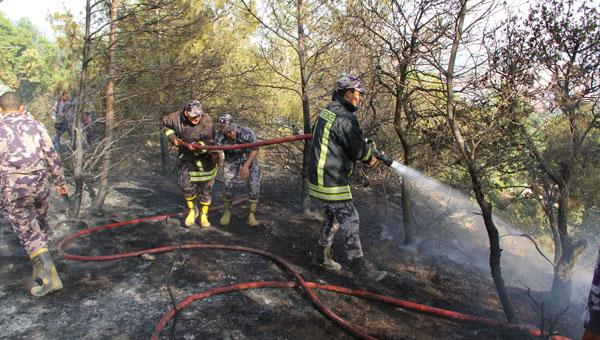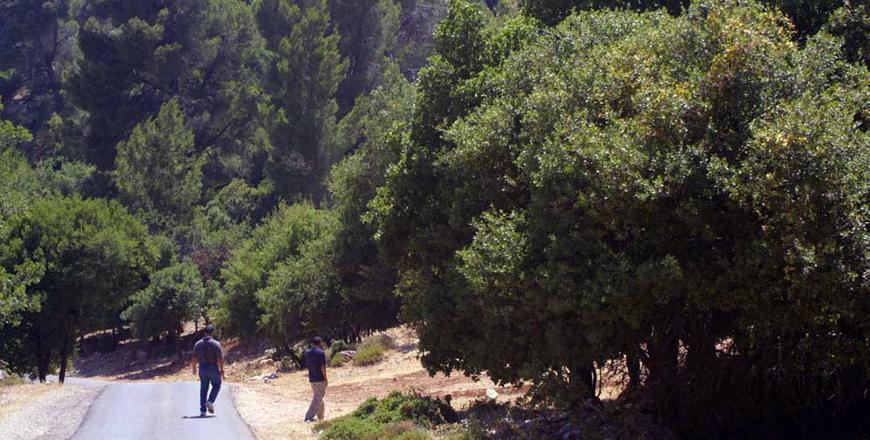You are here
35 dunums destroyed in Kamaliyeh forest fire
By Hana Namrouqa - Jun 19,2017 - Last updated at Jun 19,2017

Thirty-five dunnums of forest were destroyed in Saturday’s wild fire in Amman’s western Kamaliyeh neighbourhood (Photo by Amjad Ghsoun)
AMMAN — Thirty-five dunums of trees were destroyed in Saturday’s wild fire in Amman’s western Kamaliyeh neighbourhood, officials said on Sunday.
The fire, which started at around 5:30pm on Saturday and lasted until midnight, destroyed hundreds of trees, according to the Civil Defence Department (CDD).
“More than 1,000 trees were destroyed in the fire. Investigation into the cause of the fire is still ongoing, but initial results show that it was caused by an electric fault,” an officer at the CDD press centre told The Jordan Times.
Forty fire engines and over 150 firefighters participated in extinguishing the flames, the officer, who preferred to remain unnamed, told The Jordan Times.
Helicopters helped in extinguishing the fire, which lasted for several hours due to the area’s dense green cover, rough topography and the prevailing brisk winds at the time, according to the officer.
However, no injuries were recorded, he said.
On Sunday afternoon, CDD firefighters were still at the scene to make sure the blaze did not reignite, according to Bassam Fawair, head of the Agriculture Ministry’s Forestry Department.
“The CDD are cooling down the site of the fire by soaking the area with water. This is a very important phase after every forest fire, because flames can reignite due to high temperatures and dry grass,” Fawair told The Jordan Times.
The official indicated that different varieties of trees were destroyed in Saturday’s fire including pines and oaks, but that the majority of the burnt trees were Greek junipers.
“Many trees were damaged in the fire…, but, because the forest is protected, this part of the forest will rejuvenate in a few years,” Fawair told The Jordan Times.
Another official at the forestry department, which is located in Kamaliyeh, said that the flames were high and some very thick.
“The fire raged quickly because most of the trees are Greek junipers, which catch fire easily,” the official said.
Related Articles
Authorities are investigating a fire that erupted on Monday afternoon in Jerash Governorate’s Burma District, around 48km north of Amman, officials said on Tuesday.
AMMAN — Deputising for His Majesty King Abdullah, Royal Court Chief Fayez Tarawneh on Tuesday held an iftar banquet for 1,500 official
AMMAN — Initial results of an investigation into a wildfire that erupted on Monday in Dibbeen Forest Reserve indicated that it was caused by


















